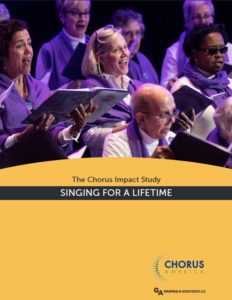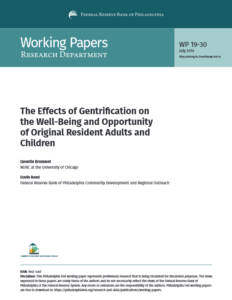August
2019
August 5, 2019
NASAA News and Current Information

NASAA Leadership Institute Is Around the Corner
It’s August! And that means the NASAA Leadership Institute is close at hand: September 18-20 in Providence, Rhode Island. If you are a state arts agency chairperson, board member, executive director or deputy director, you can develop your leadership abilities at NASAA’s 2019 Leadership Institute. Sessions designed specifically for you focus on cultivating strategic partnerships, grant-making equity, mindfulness for leaders and more. Position-specific peer sessions are unique opportunities to meet with others from around the country who share your questions and challenges. And our host, the Rhode Island State Council on the Arts, has the arts-and-culture scene covered to inspire you! Please reserve your room and register (team discounts available!) so you can join us.
Create Connections
According to Oscar Wilde, “The only thing to do with good advice is to pass it on. It is never of any use to oneself.” We couldn’t agree more—which is why NASAA connects you with colleagues around the country. We know how valuable it is to have a professional community that understands your unique challenges, with peers you can turn to for guidance, perspective and support. When you give to NASAA, you help foster connections through peer groups, listservs and other networking opportunities. Your support provides state arts agencies’ staff and council members with a rewarding professional community that is a year-round source of information and insight. Please give today. Thank you!
Interested in Mindfulness?
Practicing mindfulness is an asset to the work of state arts agencies. It supports focus, listening, attention, and stronger connection to others while reducing reactivity and easing stress. If you’re interested in learning more about mindfulness and exploring ways to practice it in your work life, please contact NASAA Chief Advancement Officer Laura Smith. She has training in meditation and experience in helping creative professionals build a mindfulness toolkit. She has organized a group of state arts agency staff and council members that meets via conference call several times a week, and you are welcome to join. You can reach Laura via e-mail or phone at 202-347-7066 for more information.
Choral Impact Study
 A new paper from Chorus America, Chorus Impact Study: Singing for a Lifetime, “shows that choral singing in America is stronger than ever, with more than 54 million Americans singing in choruses.” The report is the latest iteration of the Chorus Impact Study project, following up on research Chorus America commissioned in 2009 and 2003. For the 2019 report, researchers surveyed 5,700 choral singers, including more than 1,800 ages 62 and older, as well as members of the general public for comparison. They found that older choral singers are less likely to feel lonely and report more positive mental health outcomes.
A new paper from Chorus America, Chorus Impact Study: Singing for a Lifetime, “shows that choral singing in America is stronger than ever, with more than 54 million Americans singing in choruses.” The report is the latest iteration of the Chorus Impact Study project, following up on research Chorus America commissioned in 2009 and 2003. For the 2019 report, researchers surveyed 5,700 choral singers, including more than 1,800 ages 62 and older, as well as members of the general public for comparison. They found that older choral singers are less likely to feel lonely and report more positive mental health outcomes.
Joyful Singing, Healthy Living
The new issue of the GIA Reader features an article considering how community choirs benefit older adults and “contribute to age-friendly cities.” The piece, Joyful Singing, Healthy Living, reviews the results of the Community of Voices research study in San Francisco, which examined whether singing in a community choir is a cost-effective way to promote health and well-being among culturally diverse older adults. The study, which was funded by a grant from the National Institute of Aging, found that 89% of participants reported that singing in a choir lifts their spirits, increases feelings of well-being, decreases stress and is socially important. The article concludes by describing a cross-sector model of culturally responsive older adult choir programs.
A New Look at the Effects of Gentrification
 The Philadelphia Federal Reserve has published a paper challenging conventional wisdom about the impacts of gentrification. Using longitudinal microdata from the U.S. Census, the paper, The Effects of Gentrification on the Well-Being and Opportunity of Original Resident Adults and Children, finds “no evidence that movers from gentrifying neighborhoods, including the most disadvantaged residents, move to observably worse neighborhoods or experience negative changes to employment, income, or commuting distance.” It further concludes that many of the original residents who stay ultimately benefit “from declining poverty exposure and rising house values.”
The Philadelphia Federal Reserve has published a paper challenging conventional wisdom about the impacts of gentrification. Using longitudinal microdata from the U.S. Census, the paper, The Effects of Gentrification on the Well-Being and Opportunity of Original Resident Adults and Children, finds “no evidence that movers from gentrifying neighborhoods, including the most disadvantaged residents, move to observably worse neighborhoods or experience negative changes to employment, income, or commuting distance.” It further concludes that many of the original residents who stay ultimately benefit “from declining poverty exposure and rising house values.”
Esther Mackintosh to Retire from Humanities Federation
 Esther Mackintosh, president of the Federation of State Humanities Councils, has announced her retirement, effective once a successor is named. Mackintosh joined the federation in 1986 and was appointed president in 2004. She led the federation to expand national partnerships, increase resources to state humanities councils, help increase its federal allocation and broaden its national conference reach. Read more from the federation.
Esther Mackintosh, president of the Federation of State Humanities Councils, has announced her retirement, effective once a successor is named. Mackintosh joined the federation in 1986 and was appointed president in 2004. She led the federation to expand national partnerships, increase resources to state humanities councils, help increase its federal allocation and broaden its national conference reach. Read more from the federation.
In this Issue
From the President and CEO
State to State
- Minnesota: Teaching Artist Training in Creative Aging
- Massachusetts: DEI Plan
- Nebraska: Creative Relief Partnership
Legislative Update
Announcements and Resources
More Notes from NASAA
Research on Demand
SubscribeSubscribe
×
To receive information regarding updates to our newslettter. Please fill out the form below.
